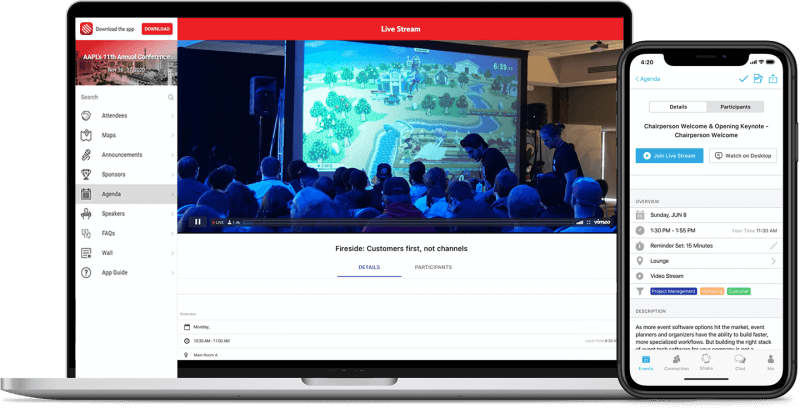Discover how it can reduce stress and offer advantages.
Loan servicing has helped take the stress out of lending and has opened the door for those who may have otherwise been apprehensive about entering the space.
In many ways, concerns about originating loans mirror those of putting alternative assets to work in a self-directed retirement plan. Some people may believe (falsely) that both require too much work and that the returns, even if they put stock dividends to shame, aren’t worth the effort. This was largely untrue even before loan servicing entered the equation. And the convenience of working with a third-party loan serving professional has only strengthened the value proposition.
Perhaps you’re sold on loan servicing, but you’re still not sure about private lending with a self-directed individual retirement account (IRA). It is possible that the former could help alleviate your concerns about the latter. If you use (or are thinking of using) loan servicing in the day-to-day lending activities that contribute to your personal income, you can do the same if you elect to originate loans with your tax-advantaged retirement dollars.
Let’s examine some of the key benefits and other factors worth bearing in mind when considering this course of action.
Less Work For You
After years of doing business for yourself, maybe you would prefer a more hands-off approach to retirement. A more traditional investment strategy with stocks or mutual funds could offer this, but your expertise may not reside in the stock market. You are a private lending expert, so that’s how you should build your retirement. Can you make this idea a reality without the hustle and bustle of everyday lending practices? You absolutely can.
The beauty of self-directed investing lies in your ability to control the process. You choose the investments that suit your skills and oversee transaction procedures to your satisfaction. That could mean handling all details short of “providing services” on a personal basis, or it could mean allocating duties to independent parties like loan servicing companies. As the account holder, you can qualify your borrowers, determine interest rates and establish payment schedules and loan durations. However, once you’ve tackled those familiar tasks, composed the loan documentation (and security documentation if you want) and issued the funds to fulfill the loan, a loan servicer can take the reins and help lighten your workload.
Passive investing is relatively common among long-term retirement investors, but they usually entrust their hard-earned money to the whims of Wall Street. Incorporating loan servicing into your self-directed IRA lending strategy can provide the same passive feel of publicly traded funds, but with the ongoing and familiar income of debt investments. Plus, exercising more control over your retirement will never compromise the tax-deferred or tax-free benefits of your account if you follow IRS guidelines.
IRA Covers all Expenses
You will never have to pay for any expenses related to your IRA-owned note from your own pocket. In fact, the IRS prohibits such payments. Just as any IRA income must flow back to the account, IRA costs can only be covered by proceeds from the account. As such, whatever your loan servicer charges can usually come out as a percentage of the interest payments your IRA receives. This can even be done automatically as part of the servicing process, leaving you with one less bill to pay.
A Reduced Likelihood of Prohibited Transactions
Hiring a loan servicer for your IRA-owned notes can provide an added degree of distance between you and your tax-advantaged assets. That may seem counterintuitive to the nature of self-direction, but it may prove useful under certain circumstances. Remember, it is critically important to maintain clear separation between your personal funds and your retirement funds. Commingling your accounts would constitute a prohibited transaction, draw the ire of the IRS and could result in the forcible distribution of any applicable assets or your retirement account in full. A loan servicer that acts only on behalf of your IRA would have limited (if any) access to your personal accounts, so the likelihood of committing a prohibited transaction is greatly reduced. When it comes to self-directed retirement, maintaining IRS compliance is just as essential as choosing the right investment opportunities.
Avoid Disqualified Persons
Prohibited transactions can also occur if your IRA derives benefit from or provides benefit to a disqualified person or entity. Such individuals or businesses could not provide loan servicing for your IRA investments. Disqualified persons include, but may not be limited to, the account holder, linear family members like parents or children, any spouses of those individuals and anyone with fiduciary responsibility over the account in question. Any businesses or other such entities (including self-directed retirement accounts) that are owned or controlled by disqualified persons are equally disqualified. This means, for example, that you could not hire your father’s loan servicing firm, even if your father doesn’t provide direct services to your IRA.
Nondisqualified persons include nonlinear family members like siblings or cousins. Trusted friends or business partners are fair game as well, provided they don’t also fall under a disqualified category. Any of these individuals or their businesses could service your IRA if you so choose.
Due Diligence
If you work with a loan servicer when lending your non-IRA funds, you can hire that same individual or business on behalf of your self-directed IRA (provided they are not disqualified in accordance with the criteria discussed previously). On the other hand, if you’re new to loan servicing and you’re not sure who to go with, be sure to follow a comprehensive due diligence process in selecting the individual or company that will have access to your retirement assets. You may qualify loan servicers in the same way you qualify potential borrowers, though you will likely find yourself asking questions you would not necessarily ask a potential borrower:
- How much is this going to cost?
- How do you communicate? How often will I hear from you?
- Do you understand that my IRA money cannot commingle with my personal money?
You should open a business relationship with a loan servicer only when your risk tolerance has been completely satisfied, regardless of whether you intend to lend personal funds or IRA funds.
Understand Communication and Confidentiality
IRA custodians (at least the ones that actively work to protect your sensitive nonpublic information) will not speak with your loan servicer without explicit written permission from you. Without this permission, they will only discuss matters related to the account with the account holder. Considering recent events involving data sharing and confidentiality, consumers are more concerned than ever about what information companies collect, how they use it and the level of transparency (or lack thereof) exhibited in the “terms and conditions” provided by these companies. A quality IRA custodian will take these concerns very seriously.
To authorize your IRA provider to share account information, you should have the option of designating your loan servicer or another such trusted individual as an interested party. Interested parties have access to relevant account information (transaction histories, available balances, etc.), but they should not have the authority to execute new investments, request withdrawals or update your contact information. In this regard, designating your loan servicer as an interested party can help keep him or her in the loop without ceding control of your account. Bear in mind that only individual company representatives are typically eligible to become interested parties; full companies may not have access to your account. This can help ensure that your sensitive contact information will never be disseminated to advertisers or data collection firms in an unfavorable manner.
If you decide to let your loan servicer pull the strings a bit more, you may grant power of attorney on behalf of your IRA. Limited power of attorney can generally be granted without too much hassle from a paperwork standpoint, though your loan servicer, as the title implies, would be limited in the transactions he or she would be able to execute. As with anything related to self-directed investing, your personal comfort level will dictate the extent to which your loan servicer will have access to your IRA account.
Self-direction creates flexibility, which is an important quality in promoting retirement success. Few professionals can build tax-advantaged wealth with the skills they’ve acquired throughout their working lives, but that’s not the case for private lenders. As discussed, the methods you use in your everyday lending practices will largely reflect the ones you would use for a self-directed IRA investment. Such methods include engaging a loan servicer if you’re so inclined.
All business carries a certain degree of stress, but adding a loan servicer to your self-directed retirement team can help diminish that stress without jeopardizing the returns you’ve come to enjoy as a private lender. As you continue to pursue the strategies that will give you the next financial edge, a private lending investment strategy that embraces loan servicing should be on your radar.












Leave A Comment